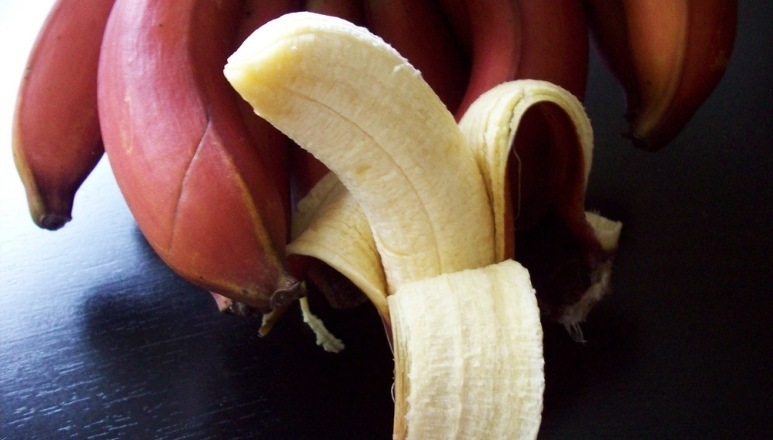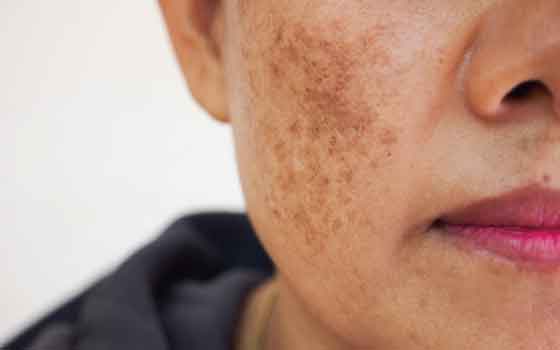Banana is one of the most consumed foods and is an extremely healthy fruit. It contains vitamins, minerals, vitamins, and carbohydrates that help in giving instant energy for a longer time.
There are more than 100 varieties of banana all around the world and one of them is red banana. Also known as Red Dacca Banana, red bananas are soft taste similar to the regular banana but have a hint of raspberry sweetness in them.
They are a good source of essential nutrients and benefit the immune system, heart health, and digestion.
Benefits of Red Bananas
Rich Source Of Nutritive Fiber
Red bananas are a great source of fiber that is essential for regular bowel movements. A diet high in fiber reduces the risk of Crohn’s disease.
Those with chronic bowel issues such as constipation, indigestion, or gas are recommended to eat red bananas.
Rich Source Of Many Important Nutrients
Just like yellow bananas, red bananas are rich in essential nutrients required by the body such as potassium, vitamin C, vitamin B6, and fiber.
One small red banana provides:
- Protein 1.13 g
- Carbohydrates 23.8 g
- Calcium 5.2 mg
- Phosphorus 22.9 mg
- Vitamin B6 0.382 mg
- Vitamin C 9.05 mg
- Magnesium 28.1 mg
Lowers Blood Pressure
Potassium is an essential mineral for heart health and red banana is a rich source of potassium.
Research shows consuming potassium-rich food helps in lowering blood pressure.
One more research found increasing the magnesium intake decreases the risk of high blood pressure by 5 %. Red bananas are rich in potassium and magnesium and both these minerals help in reducing the blood pressure level.
Supports Eye Health
Red bananas contain carotenoids, lutein and beta carotene, pigments that give their peels red color. A study found eating lutein-rich food reduces the risk of age-related macular degeneration by 26 %.
Beta carotenoid also supports eye health and is present in a maximum amount in a red banana than other banana variety. Beta carotene gets converted into vitamin A in the body, an essential vitamin for eye health.
Rich Source Of Antioxidants
Red bananas are a good source of certain antioxidants than yellow bananas. Antioxidants prevent cellular damage caused by free radicals. Excess free radicals can lead to stress that is linked with heart disease, diabetes, and cancer.
Antioxidants present in a red banana are:
- Carotenoids
- Dopamine
- Vitamin C
- Anthocyanins
These antioxidants offer many protective health benefits.
Eating fruits rich in antioxidants lower the risk of many health conditions.
Supports the Immune System
Red bananas are a rich source of vitamin C and vitamin B6, and other nutrients that are essential for a healthy immune system.
Vitamin C boosts immunity by strengthening the cells of the immune system. The deficiency of this vitamin can increase the risk of infection.
Vitamin B6 also plays a role in supporting the immune system. The deficiency of this vitamin reduces the body’s production of white blood cells and immune antibodies that help fight infection.
Improves Hair Health
Red bananas use as a hair mask. Being rich in potassium, natural oils, carbohydrates, and vitamins, it helps in softening the hair and improves their elasticity.
Red bananas if applied on the hair prevent split ends, breakage and improve shine and hair growth.
Coconut, sesame or almond oil can add to the red bananas hair mask for added benefits.
Weight Loss
Red bananas contain fewer calories as compared to other fruit varieties. Consuming red bananas can give a feeling of fullness without consuming too many calories.
A single banana contains 90 calories and no fat and therefore can be easily consumed by those with excess weight.
Prevents Kidney Stones
Potassium present in red banana is essential for the regular working of the body. It also prevents the formation of kidney stones, heart disease, and cancer.
Potassium also helps in calcium retention and improves bone health.
Red bananas are a unique fruit that provide many health benefits to the body. They are rich in many nutrients, fiber and low in calories and can be an addition to meals, snacks, and nourishing desserts. They improve digestive and heart health and can be eaten as a part of a healthy diet.



